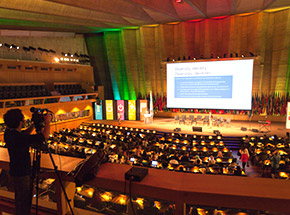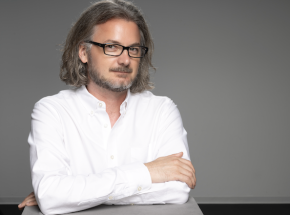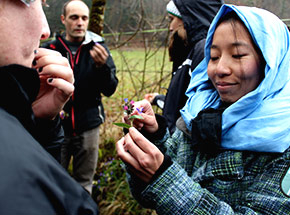
- About AUP
- History of AUP
- Mission & Core Values
- Vision and Leadership
- AUP Recognition
- Alumni Success
- Campus Development
- Arts at AUP
- Policies & Guidelines
- Academics
- Undergraduate
- Graduate Programs
- MA in Diplomacy and International Law
- MA in Global Communications
- MSc in Human Rights and Data Science
- MA in International Affairs
- MA in International Affairs, Conflict Resolution, and Civil Society Development
- MSc in International Management
- MSc in Strategic Brand Management
- Find Your Thesis Advisor
- Previous Programs
- Cultural Program
- Faculty
- Summer School
- Research Centers
- The Center for Critical Democracy Studies
- Upcoming Events
- Research Projects
- Fellows’ Publications
- Publishing
- Curriculum
- Community
- Partnerships
- Visiting Scholars
- CCDS Highlights
- Atelier de Théorie Politique – Paris
- Critical Theory 101: Future Directions and New Challenges
- Martti Koskenniemi on “The Law of International Society: A Road not Taken”
- Academic Freedom Symposium
- Tocqueville Colloque 2023
- Violent Turns Conference
- Degenerations of Democracy
- DEMOS21 Inaugural Event
- What Demos for the 21st Century?
- The Paris Centennial Conference
- Justice Stephen Breyer
- Civic Jazz - The Launch of the Center
- Past Events
- FR
- The Center for Writers and Translators
- The George and Irina Schaeffer Center for the Study of Genocide, Human Rights and Conflict Prevention
- The Joy and Edward Frieman Environmental Science Center
- The Center for Media, Communication & Global Change
- The Center for Critical Democracy Studies
- Departments
- Academic Resources
- Academic Affairs
- Academic Calendar
- Academic Resource Center
- Library
- Registrar's Office
- Teaching and Learning Center
- Accessibility & Accommodation Services
- AI@AUP: A Campus-Level Initiative
- Quai D'Orsay Learning Commons
- Paris as Classroom
- ACE
- Admissions
- Student Life
- Campus
- Student Leadership & Involvement
- Paris
- Support Services
- Student Life Help Desk
- Student Accounting Services
- Student Immigration Services
- Student Grievance Procedure
- Diversity and Inclusion
- Health & Well-being
- Digital Student Handbook
- News
- Events
- AUP Giving
- Housing Offer for 2025-2026
- IT Services
- Alumni
- About AUP
- History of AUP
- Mission & Core Values
- Vision and Leadership
- AUP Recognition
- Alumni Success
- Campus Development
- Arts at AUP
- Policies & Guidelines
- Academics
- Undergraduate
- Graduate Programs
- MA in Diplomacy and International Law
- MA in Global Communications
- MSc in Human Rights and Data Science
- MA in International Affairs
- MA in International Affairs, Conflict Resolution, and Civil Society Development
- MSc in International Management
- MSc in Strategic Brand Management
- Find Your Thesis Advisor
- Previous Programs
- Cultural Program
- Faculty
- Summer School
- Research Centers
- The Center for Critical Democracy Studies
- Upcoming Events
- Research Projects
- Fellows’ Publications
- Publishing
- Curriculum
- Community
- Partnerships
- Visiting Scholars
- CCDS Highlights
- Atelier de Théorie Politique – Paris
- Critical Theory 101: Future Directions and New Challenges
- Martti Koskenniemi on “The Law of International Society: A Road not Taken”
- Academic Freedom Symposium
- Tocqueville Colloque 2023
- Violent Turns Conference
- Degenerations of Democracy
- DEMOS21 Inaugural Event
- What Demos for the 21st Century?
- The Paris Centennial Conference
- Justice Stephen Breyer
- Civic Jazz - The Launch of the Center
- Past Events
- FR
- The Center for Writers and Translators
- The George and Irina Schaeffer Center for the Study of Genocide, Human Rights and Conflict Prevention
- The Joy and Edward Frieman Environmental Science Center
- The Center for Media, Communication & Global Change
- The Center for Critical Democracy Studies
- Departments
- Academic Resources
- Academic Affairs
- Academic Calendar
- Academic Resource Center
- Library
- Registrar's Office
- Teaching and Learning Center
- Accessibility & Accommodation Services
- AI@AUP: A Campus-Level Initiative
- Quai D'Orsay Learning Commons
- Paris as Classroom
- ACE
- Admissions
- Student Life
- Campus
- Student Leadership & Involvement
- Paris
- Support Services
- Student Life Help Desk
- Student Accounting Services
- Student Immigration Services
- Student Grievance Procedure
- Diversity and Inclusion
- Health & Well-being
- Digital Student Handbook
- News
- Events
- AUP Giving
- Housing Offer for 2025-2026
- IT Services
- Alumni
Related Links
Alumni
World-renowned Journalist Kim Chakanetsa Continues to Empower Global Voices
Home>Academics>Undergraduate>Majors & Minors>
Recording for The Conversation, BBC Studio, London
For broadcast journalist and writer Kim Chakanetsa ’05, journalism is about having the necessary conversations to elevate voices that often go unheard. With two master’s degrees from Columbia University and the University of Oxford and more than a decade of award-winning media production under her belt, Kim Chakanetsa has used her international education, curiosity and deep connection to the African continent to excel at storytelling across media. Born and raised in Zimbabwe, she began her academic journey at AUP with a Bachelor’s degree in International Communications and Political Science.
“I always loved writing,” says Chakanetsa of her early years in Zimbabwe, “and I was inspired by women in journalism such as Christiana Amanpour.” Indeed, Chakanetsa had already decided on a career in journalism when she arrived in Paris, and AUP gave her with the liberal arts foundation she needed to pursue that path. “It really set me up academically,” she explains, citing the intimate atmosphere of a smaller university and the accessibility of the knowledgeable professors she worked with as the highlights of her experience. “I knew all my professors, and it felt very intimate. I had meetings with them and felt that I was part of a community,” she recalls. This personalized approach to education is one of the strengths of the program, which gave her the foundational understanding of communication and the diverse perspectives that would shape her approach to the world and its stories.
Chakanetsa’s career took off after she completed her MSc in African Studies at Oxford University thanks to a Terence Ranger Fellowship. She took a job conducting research for a consultancy firm for three years in order to “feel out” what she wanted to do journalism-wise. While freelancing, she realized that she needed more technical skills and, thanks to a Pulitzer Africa Fellowship, began an MSc in broadcast journalism at Columbia University. She then won a Margaret Moth Fellowship and a placement at CNN where she was invited to stay on as an international assignment editor in the newsroom in Atlanta, Georgia, covering major global stories such as the Syrian uprising in 2011.
Following her time at CNN, Kim joined the BBC, where she spent a decade as a multimedia journalist with a particular focus on radio, which she has always loved. One of the highlights of her career at the BBC was hosting The Conversation, a radio program that brought together in each episode two women from around the world with different lives but similar experiences. The show, which Kim hosted for nine years and more than 450 episodes, saw her interview the likes of Íngrid Betancourt and Amanda Lindhout, Simon Biles and Nadia Comaneci, and won three prestigious awards for the ‘conversations’ it sparked about the struggles and triumphs of women around the world.
“There is a real ease and intimacy with audio,” she explains. While images can be powerful and sometimes shocking, Chakanetsa believes that the voice has a different power. “There’s just something about listening to people speak,” she says. “When you ask someone something off the cuff, there is a real difference in how people react when you have a camera versus when you have a microphone.”
In 2020, Kim co-created The Comb, the BBC’s first African narrative-led podcast, which proved hugely popular for its focus on African voices. The podcast, which ran for six seasons, explored a wide range of topics, from political disappearances and the Ebola epidemic to issues of gender and identity across the African continent. But Kim Chakanetsa did not stop at radio and television. In 2022, she published Africana, a children’s encyclopedia about Africa, which has since been translated into nine languages. Her book aimed to present a contemporary and accurate reflection of Africa, dispelling outdated stereotypes and showcasing the richness of African cultures and history.
As she continues to work on various writing projects, Chakanetsa is sometimes alarmed by the changing landscape of journalism. While she remains optimistic about the future, she acknowledges the major challenges facing the industry. The rise of low-quality podcasts, the fragmentation of the media market and a lack of media literacy have all reshaped the journalistic landscape, not to mention the risks associated with AI. But she remains optimistic, believing that new models are emerging, with new platforms giving journalists the freedom to produce authentic and independent work.
For students studying at AUP today, Kim offers valuable advice: “Take advantage of being in such a unique place, surrounded by people who bring different perspectives.” For future journalists, she stresses the importance of understanding different points of view, especially in a world where truth has become so difficult to decipher. “Stay curious, read widely and listen to things you don’t agree with. It will make you a better writer and a better journalist,” she advises.
Reflecting on her own career, Chakanetsa considers herself lucky. “I’ve been so lucky to have had the career I’ve had,” she says. Her work has taken her to places she never imagined, introduced her to new worlds and people, and allowed her to have a direct impact on how the stories she cares about are told.
Currently based in New York City, Chakanetsa is focusing on new projects. She recently launched a newsletter about African arts and culture called Africa Unbound. As she continues to explore the world of writing, her career remains driven by a clear mission: to amplify voices, tell stories that matter, and bridge the gap between cultures and continents.
Related
-

UNESCO Youth Forum
Student Work
Read MoreUNESCO Youth Forum
Student Work
The Peacock Plume was selected by UNESCO to step in as the official source of news for the 9th Youth Forum in Paris.
-

Olivier Laurent ’05
Alumnus
Read MoreOlivier Laurent ’05
Alumnus
At AUP Laurent joined a thriving communications and journalism department, which guided him in developing the necessary skills to set out on an international...
-

Jura Practicum
Study Trip
Read MoreJura Practicum
Study Trip
Nibbling on a piece of rich, milky, nutty cheese might have more cultural implications than you think.



